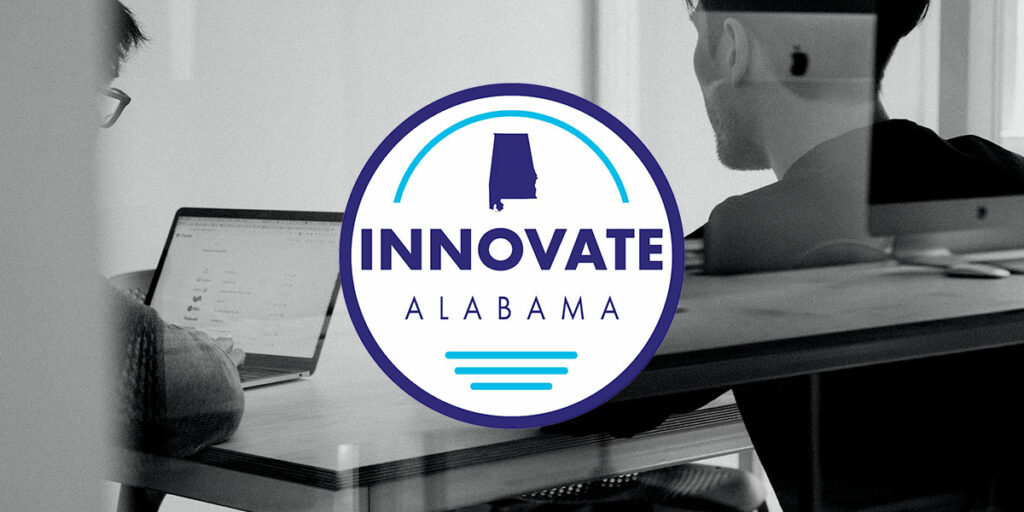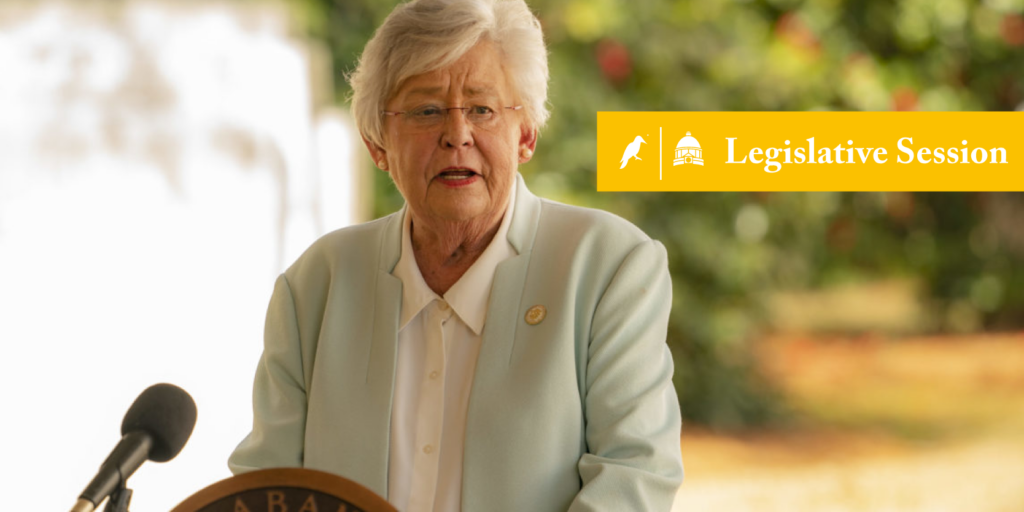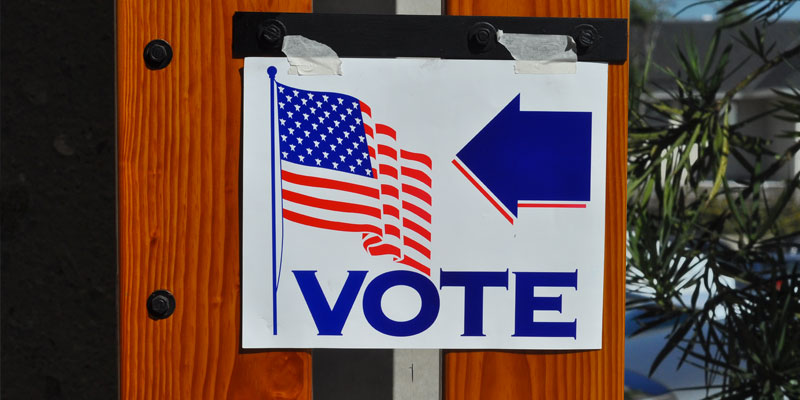MONTGOMERY — Friday marked an important milestone in increasing Alabama’s competitiveness in the rapidly evolving 21st-century economy.
Governor Kay Ivey signed three priority bills into law, including HB 192 and HB 170.
That latter bill, sponsored by Rep. Danny Garrett (R-Trussville) and Sen. Dan Roberts (R-Mountain Brook), contains a provision entitled the Business Tax Competitiveness Act that includes moving the state to a single sales factor for corporate taxes. Garrett has said the act “will make our businesses more competitive.”
“This legislation allows Alabama companies to compete at the same level,” stated Roberts. “We’re trying to help our businesses be as competitive as possible and give them every advantage we can to succeed.”
Meanwhile, HB 192 — sponsored by Rep. Bill Poole (R-Tuscaloosa) and Senate Pro Tem Greg Reed (R-Jasper) — would extend and enhance job creation incentives found in the Alabama Jobs Act and Growing Alabama Act.
Reed and Poole appeared alongside Senate Minority Leader Bobby Singleton (D-Greensboro) and House Minority Leader Anthony Daniels (D-Huntsville) at a press conference on Thursday afternoon to discuss this landmark legislation, underscoring the bipartisan nature of not only this bill, but also Alabama’s modern economic development efforts in general.
Poole said the ultimate goal of HB 192 is “to create economic opportunities in every corner of the state and in a number of key strategic industry sectors.”
He also reiterated that the job-creation incentives renewed and “sharpened” through the bill are not received by businesses on the front-end but are instead performance-based. This means that businesses must successfully create new jobs under the parameters of the legislation before receiving a dime of tax credits.
Singleton said, “Whether you’re north, east, south or west, whether you’re rural or urban, we think this bill can start a big spark across the state of Alabama.”
He noted that for areas in the Black Belt like his district and other rural parts of the state, “We believe this is a game-changer for us. So I’m ecstatic today.”
“Plus, this bill was enhanced by allowing minority participation. … We’re very proud of the commitment that we’ve gotten from the Department of Commerce and the governor, and also along with [Reed and Poole], who said that they would make it a priority to make sure that it was inclusive and it was diverse,” Singleton added.
Daniels emphasized that HB 192 “is a very powerful piece of legislation that is going to really set the foundation for tremendous growth long-term in Alabama.”
“I’m just proud to say that today is a good day in Alabama, but it’s just the beginning,” he remarked. “There will be other tools that will follow this to make it complete.”
Much more than one bill
Similarly, as Reed discussed in an interview with Yellowhammer News recorded last week, this is merely the latest piece in a concerted, comprehensive effort to strategically prioritize innovation and increasing Alabama’s economic competitiveness.
Reed is the vice chairman of the Alabama Innovation Commission and has been at the forefront of major pieces of legislation to this end in recent years.
Speaking to Yellowhammer News in a joint interview with House Speaker Mac McCutcheon (R-Monrovia), Reed talked about not only what has occurred in the recent past related to incentivizing innovation and growth, but also what is still to come.
“If you look at, we go back to the Alabama Jobs Act — actually, the speaker and I sponsored the Alabama Jobs Act originally. He was the [Rules Committee] chairman at the time; he was not the speaker. But we worked on that together to pass that legislation,” Reed outlined. “In the Senate, the Growing Alabama and the AIM Act — I sponsored those in the Senate as well. So I’ve been involved and engaged in these incentive packages and opportunities to offer tools to economic developers in the Department of Commerce and ADECA to be able to utilize in recruiting industry to Alabama, is kind of a hallmark of what I’ve tried to do in my legislative service.”
“And Alabama has done extraordinarily well,” he continued. “I mean, our track record over the last several years has been really strong. But the speaker and myself back when we first did that four or five years ago, on the Alabama Jobs Act, we put a sunset provision in that law on purpose, so that it would force us as legislators to look at not just the good things that we had accomplished as a result [of the bill], but force us to look at what the landscape was going to be in the future.”
Just like that past example, HB 192 has a sunset date in summer 2023, meaning legislators will again be able to review incentive results and readjust as needed how to best position Alabama for future success in what Reed stressed is “a competitive environment.”
“We’re competing with Mississippi and Michigan and North Carolina and wherever trying to get industry to come to Alabama,” he affirmed. “We’ve been very successful, but that landscape is changing. One of the things that’s a hallmark of [HB 192] was that it has a shorter timeframe (sunset) on it than what we had originally with the incentive packages. And that is simply because we are doubling down on the idea that we don’t exactly know what our economy and what recruitment opportunities are going to be available to us in the future.”
“If you look at a post-coronavirus economy, what’s that going to mean in Alabama? What are things that are going to be different?” Reed explained. “We’ve got great stories, one of them that’s in my district in Fayette, Alabama, in Fayette County. You had a manufacturer of medical gloves, candidly, almost went out of business. But as a result of what transpired and the need for PPE, those folks are now, I think, they’re on their third expansion. They’ve gone from 100-something employees to 400 employees. And it’s just because their product is in such demand. There will be other things like that — kind of some bringing back onshore of businesses that Alabama wants to compete for.”
Reed also discussed Innovate Alabama, which recently released interim policy recommendations.
“I’ve learned so much in the Alabama Innovation Commission,” the senator from Walker County said. “That Innovate Alabama process — that Chairman Poole and I are chairing, that the governor appointed — we’ve got brilliant people that are on that commission. They’ve had all kinds of experience with entrepreneurial startups, high tech jobs, all these kinds of things — have had great success. We’ve got an advisory board for that commission that includes Condoleezza Rice and her resource available to Alabama now from the Hoover Institute at Stanford University, which has all kinds of research available to Alabama.”
“So, thinking about those kinds of things and being able to put incentive packages together and looking at where we’re going and what we’re doing, I think times are exciting,” Reed concluded. “I think Alabama’s future is very bright. … But being able to recruit, innovate, be competitive — it’s something that is very important to us. And I think this legislation gives us a chance to do that.”
That full video interview with Reed and McCutcheon can be watched here or below:
Reed, Poole, Singleton and Daniels on Thursday also praised Governor Ivey’s administration, as well as private sector partners, for their efforts related to HB 192.
For the state of Alabama as a whole, this comes at a time in which the same themes of innovation and modernization have comprised not just the core of economic development recruitment and expansion efforts, but also workforce development planning and programming.
While 2020 was certainly a uniquely challenging year, it also saw the Yellowhammer State continue to aggressively chart a path toward a more robust, resilient 21st-century economy under the leadership of Ivey, her administration and a broad spectrum of partners such as the Alabama Workforce Council, AIDT, and colleges and universities.
Ultimately, while tools such as HB 192 can incentivize companies to relocate to Alabama and existing Alabama businesses to expand, job creators still need qualified, skilled and reliable workers in order for potential growth to be fulfilled.
Tim McCartney, chairman of the Alabama Workforce Council, wrote in an op-ed, “Connecting Alabama workers to good jobs and employers to a skilled workforce is our most pressing objective and will help us achieve Alabama’s postsecondary attainment goal of adding 500,000 credentialed workers to Alabama’s workforce by 2025. As we plan for the economy we’ll need after the pandemic subsides, it is essential to connect workers to the upskilling pathways that provide them with new opportunities in rebounding fields and careers.”
With that in mind, Alabama has made significant progress related to workforce development over the past year.
This included being one of only eight states to receive a Reimagining Workforce Preparation Grant, which will go towards retraining efforts for those displaced by COVID.
The state also launched a first-in-the-nation tool helping people achieve self-sufficiency, called the Dashboard for Alabamians to Visualize Income Determinations (DAVID).
Another highlight was Ivey in recent months forming the Alabama STEM Council.
And, public sector entities and private sector partners including Alabama Power Company, Altec Industries, the Business Council of Alabama (BCA), and Balch and Bingham helped launch JumpStartAL in 2020. This initiative offers new education and training programs to develop Alabama’s next generation of highly skilled workers, headlined by virtual reality training solutions from the job simulator TRANSFRVR.
The road ahead
Friday also marked the start of the legislature’s break following the first two weeks of the 2021 regular session; both chambers will reconvene on Tuesday, February 23, having gotten off to a fast start by passing the three priority bills, among others.
“These are trying times for many across our state, and the legislature, working with the governor, identified these three pieces of priority legislation to help Alabamians recover from the economic hardships endured throughout this pandemic,” Reed stated.
“I am proud to say that the legislature, as of today, has accomplished our goal for the people of Alabama to pass each of these critical, priority pieces of legislation in the first two weeks of the legislative session. Alabamians expect these kinds of results from their representatives in the legislature, and we have delivered,” he continued. “I appreciate my colleagues in the Senate and the House, as well as the governor’s support and leadership, as we delivered these results for the people of our state.”
Senate Majority Leader Clay Scofield (R-Guntersville) added that he is “pleased with the work that has taken place not only among the Senate Republican caucus, but also across the aisle to deliver significant results for the people of Alabama.”
“There is certainly much work left to be done, and I am confident we will continue to focus our efforts on accomplishing successful results for Alabamians,” Scofield said.
Reed concluded, “While these have been a strong first two weeks of session, we still have a lot of important work ahead of us. I look forward to continuing the bipartisan collaboration we have seen over the past few weeks as we continue to deliver results to the people of Alabama.”
Sean Ross is the editor of Yellowhammer News. You can follow him on Twitter @sean_yhn














